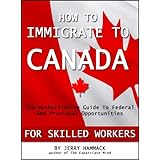If you read the checklists of what to do as soon as you arrive in Canada as an immigrant, one of the top things is to establish a bank account. Now I've been here nearly nine months and I'm just getting that particular item crossed off of my list.
Why the long wait? Well, I still have had a lot of business with the U.S., so I hadn't closed those accounts yet. My Love and I use those accounts when we go to the Niagara/Buffalo region to shop sales too. I just haven't had the need to set up an account until now.
But a tax refund check and the reality of U.S. tax laws meant that I had to do something. Until all the ramifications of Report of Foreign Bank and Financial Accounts (FBAR) are understood, it was better for us that I establish my own bank account rather than simply join my Love's.
That issue aside (it will be 2014 before anyone understands how the IRS intends to use the mandatory reporting), it's nice to take one more step to integrate into Canadian life.
So who am I banking with? TD? CIBC? RBC? Nope. I chose President's Choice (the same folks that bring you tasty food at Loblaws). They offer a completely free checking account through CIBC, with access to all the Interac machines in the country. One good thing about waiting a few months to get this done is I was aware of the best options for my needs.
Not sure what's left on the "after you arrive" list, but I'll keep you posted as usual!
Why the long wait? Well, I still have had a lot of business with the U.S., so I hadn't closed those accounts yet. My Love and I use those accounts when we go to the Niagara/Buffalo region to shop sales too. I just haven't had the need to set up an account until now.
But a tax refund check and the reality of U.S. tax laws meant that I had to do something. Until all the ramifications of Report of Foreign Bank and Financial Accounts (FBAR) are understood, it was better for us that I establish my own bank account rather than simply join my Love's.
That issue aside (it will be 2014 before anyone understands how the IRS intends to use the mandatory reporting), it's nice to take one more step to integrate into Canadian life.
So who am I banking with? TD? CIBC? RBC? Nope. I chose President's Choice (the same folks that bring you tasty food at Loblaws). They offer a completely free checking account through CIBC, with access to all the Interac machines in the country. One good thing about waiting a few months to get this done is I was aware of the best options for my needs.
Not sure what's left on the "after you arrive" list, but I'll keep you posted as usual!


You might want to study very closely the implications of banking and saving in Canada. Many people who are deemed US taxable 'persons' who have moved outside the US are now trying to comply with the complex and draconian FATCA and FBAR requirements of the US. All sorts of everyday banking and savings, and pensions that we take for granted are toxic to US citizen/persons 'abroad', because they are considered 'foreign'. The reporting is labyrinthine, hard to understand, and the pitfalls are many. It takes a cross-border specialist to advise - so you can make decisions about your accounts, and savings, way BEFORE any reporting is due, because so many have found after the fact that they have missed some obscure form or deadline - completely different than what applies to US citizens inside the US. Plus, Canada has it's own rules in this respect too.
ReplyDeleteHere's a whole website where many of us are trying to figure things out - after the fact.
http://isaacbrocksociety.ca/2012/05/10/american-citizenship-a-cost-benefit-analysis-5-2/
You might not agree with some of the sentiments expressed there, but at least you will be forewarned about the pitfalls, and hopefully not fall into them as so many have inadvertently and innocently.
http://isaacbrocksociety.ca/2012/01/23/fatca-the-need-to-know-basis-is-not-satisfied/
It's always good to have as full a picture of possible of the impacts of leaving your home country for another.
ReplyDeleteWhile I agree that it's hard to stomach some of the policies of the IRS (citizen-based taxation for one), it is the price you pay for retaining American citizenship. Many expats want the flexibility in travel, economic and other opportunities that come with U.S. citizenship, but don't want to pay for it. In many ways, just like U.S. citizens at home who want the benefits of government support, but complain about paying taxes.
As voting U.S. citizens, we do have the ability to make our viewpoints known directly to our representatives, or to challenge the government legally if we feel our rights are being violated.
Once an expat makes the commitment to another country in the form of citizenship, they also have the choice to renounce their U.S. citizenship. It costs $400 and takes a couple months.
Life is full of complicated choices when it comes to being an expat. I just feel blessed that I HAVE a choice.